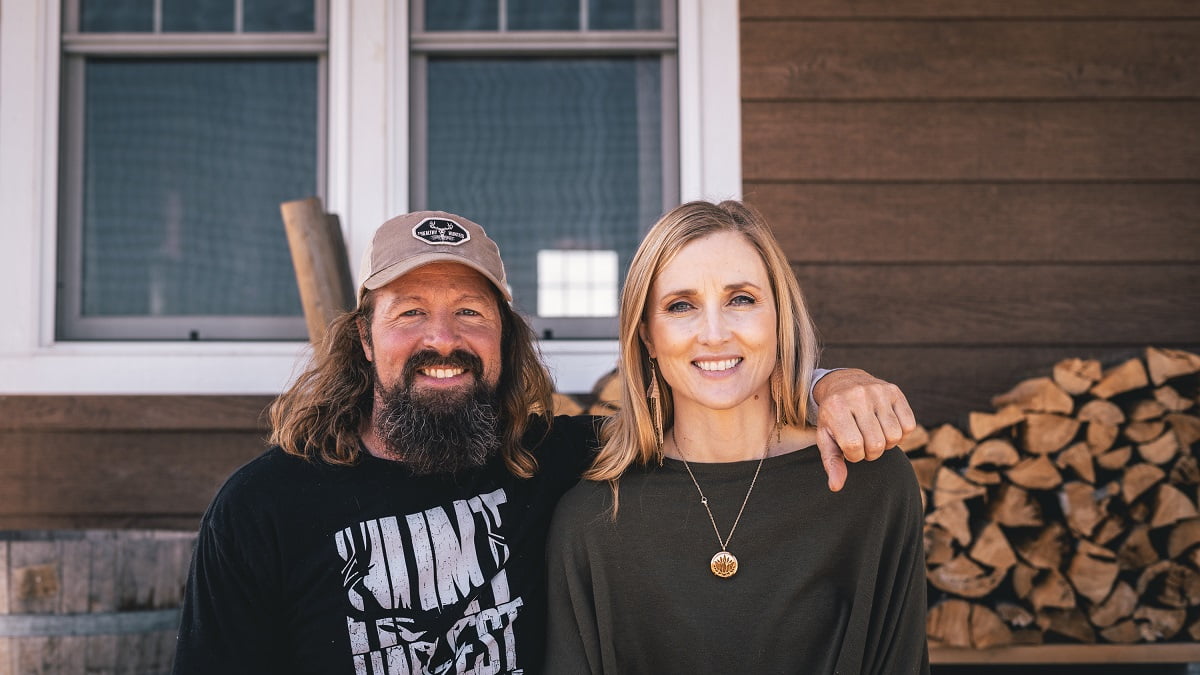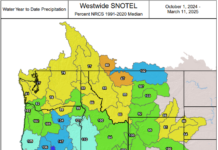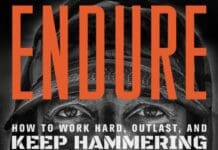Four years ago my husband and I began a small little podcast called Hunt Harvest Health. At the time I was specializing mainly in head trauma, concussion, and TBI – working with athletes, active military, car accident victims, and trauma patients. In my expertise, it was quite common to see more men than women, which made sense based on the statistics of men taking part in activities that predispose them to head and brain injury. It was also a well-known fact that these patients tended to suffer from more fatigue, depression, poor sleep, behavioral disorders, headaches, weight gain, substance abuse, breathing disorders, and low libido sometimes years after “recovery”.

Due to us launching our podcast in the sphere of hunting, with a predominantly male audience (yes ladies I’m not leaving you out, just stating the obvious), I became even more curious of the brain’s hormonal actions required to have good mental, emotional, and physical stamina.
Making Sense of Testosterone and TRT
We know that brain injury (concussion, TBI, chronic stress, oxygen deprivation) can affect the hypothalamus and pituitary gland – both of which are required for proper action of steroid hormones such as progesterone, testosterone, estrogen, cortisol, growth hormone, and thyroid (to name a few) The signals can get screwed up, hormones can get confused or diminished, and the feedback loops dysfunction. As I began to expand my practice by diving deeper into these hormonal influences, I began finding a trend in many men, even those who reported they’d never had a head trauma- low testosterone.
Our Toxic Burden
Our bodies are burdened like no other time in history from invisible factors and choices we may or may not make including decades of endocrine-disrupting chemicals (EDC): pesticides, plastics, fire retardants, lack of nutrient-dense foods, and systematic takeover of our food system by corporations, Monsanto, and Big Pharma. Lack of exercise, overworking, blue lights, massive sugar consumption, and a life of ease haven’t helped much either.
Fifty years ago, your father or grandfather was walking around with almost twice what you have today. A hundred years ago, it was likely three to four times as much as the average 20-50-year-old reading this article. Sperm counts have decreased, and infertility has become a common issue affecting men. Many of today’s chemicals are xenoestrogens, which harm the male endocrine system, with exposure starting in utero. Boys and men have more head traumas which can also lead to lower testosterone – from sports that cause repeated concussions, fights, accidents, military combat, and high-risk jobs.
The Nitty Gritty of Testosterone
You synthesize all of your steroid hormones from cholesterol, testosterone is one of them. Production happens in the testes in men, ovaries in women, and adrenals in post-menopausal women. The brain stimulates production in the testes (or ovaries) through hormonal messengers, which also have a part in sperm production. A man’s testosterone decreases 1% each year after the age of the 30, Testosterone is responsible for male sexual characteristics and sperm development, acne, muscle development, bone growth, red blood cell production, and sex drive.
By nature, testosterone makes men more competitive, aggressive, athletic, sexual, and attracted to high-risk behavior and jobs (it helps these things in women too just in smaller amounts), while at the same time making them more loving, caring, and calm. Testosterone protects the heart and brain, bones and muscles, and is required for repair and recovery in both men and women. It lights up the brain and improves memory, cognition, lowers depression, agitation, and anger. All positive reasons for men (and women) to have enough of it. It can also cause male pattern baldness (DHT particularly), and prostate enlargement.

Total and Free Testosterone
In the blood, you have both total and free testosterone. MOST of your total testosterone is not usable, thus the free testosterone number is vital to know. Free testosterone is NOT bound to a protein called Sex Hormone Binding Globulin (SHBG) and therefore can bind to testosterone receptors. SHBG can be increased by things like excessive exercise making your free testosterone lower, but many times this can be attributed to your genetics. Some testosterone is converted to estrogen, primarily in fat cells.
Estrogen In Men
Estrogen is important for men and needs to be in a good range, helping the bones, brain, effectively function. Too little estrogen will cause depression and erectile issues (ED), too much estrogen causes moodiness, anger, ED, and breast tenderness with possible man boobs (which is predominantly a genetic predisposition). With the overexposure to estrogen-mimicking chemicals, estrogen receptor activity can increase. Along with that, more fat, insulin resistance, inflammation, drinking alcohol, and taking too much TRT will increase the conversion of testosterone to estrogen and should always be addressed and managed. Sorry guys, back away from the cake and beer- your wife will thank me later:)
Where To Start
First, you may want to know if you have low T? Here is a common list of signs and symptoms in men of 18 and older that might indicate a visit to a doctor and a blood draw.
- Fatigue, decreased motivation, and losing interest in things you used to like to do.
- Started puberty late, decreased male characteristics, loss of body and pubic hair.
- Brain fog, depression, memory issues, and moodiness – crying at commercials and picking fights – especially if this is new for you.
- Insomnia, waking up frequently, not getting into a deep sleep, waking up tired, falling asleep during the day.
- Not recovering from exercise, having more muscle soreness of longer duration after exercise, joint and body pain, not as strong, and losing muscle mass.
- Depression, especially if this is a new symptom.
- Lack of libido, no motivation for sex, erectile dysfunction, testicular shrinkage, and lack of sensitivity during sex.
- Varicose veins and hemorrhoids.
- History of head trauma that preceded symptoms.
- You have started or on medications that are known to decrease testosterone. Some examples are antidepressants, steroids like prednisone, and
- YOU DO NOT NEED TO HAVE ALL of this to have low T. From my experience in younger men, sex drive and sexual function is the last thing to go. In older men, it’s common to have decreased sexual prowess and more ED as an earlier symptom, but don’t rely on that as the only time to seek out help. The others are very important to address!
Second, get help from a qualified doctor. This can be hard to find, because even endocrinologists these days are mainly diabetes doctors and don’t or won’t prescribe hormones, and most don’t address your exposures. Your primary doctor is unlikely to be up to date on important lab testing, prescribing, and again may be against doing anything at all. Look for a medical doctor, functional medicine practitioner or naturopathic doctor who specializes in hormone therapy and will look at your labs AND symptoms, addressing lifestyle, stress management, and TRT correctly if you need it.
Improving hormonal health also includes upkeep and routing testing, so pick a doctor you like and trust, as you will be needing to share some pretty intimate stuff on occasion. A feeling of inadequacy can creep up when you aren’t feeling well, but know this is a common problem that is not being addressed properly in millions of men!! If you need to start with your lifestyle, think about purchasing the Testosterone Project off our website. It’s an online program created to bring more depth to this topic and help you begin the foundational things that are essential for long term health!

Third, make sure you get the proper labs done. After first assessing a patient’s symptoms, medical history, and physical exam, we discuss which labs are indicated. These labs also apply to women with the exception of a few. It’s also important not to jump to the conclusion that you need testosterone before we have real numbers, since there are many conditions that can cause similar symptoms. Make sure to fast overnight for at least eight hours, and get your draw early, preferably before 9 am.
Testosterone naturally decreases as the day goes on, an afternoon draw may show falsely elevated levels. If you have low testosterone, it is sometimes worth doing a second draw to confirm, since testosterone is pulsatile. You might also be too young for testosterone and need something else that can increase levels, this is why getting a doctor to help is vital. Doing any testosterone hormone without proper labs is not good medicine, nor is self-prescribing. There are conditions that TRT is contraindicated in, and they need to be ruled out. It is a controlled substance and can be abused by men, not to mention mess up your endocrine system if you are too young and or want children in the future. I have seen a lot of damaged endocrine systems from the use of steroids and black-market testosterone. Don’t risk it to save money, it’s not worth it.
- Total Testosterone – Over 500 ng/dL is good, between 700-1100 is optimal.
- Free Testosterone – Over 18 is good, between 25-35 is optimal.
- Estradiol- Optimal is between 25-35.
- SHBG
- LH
- FSH
- Prolactin
- PSA, total
- DHEA-S
- CBC
- Complete Metabolic Panel
- Vitamin D
- Thyroid Panel – Free T3, Free T4, TSH, TPO antibodies
- Lipid Panel- Lipid Fractionation if possible
- Homocysteine
- CRP
- Insulin
- HgAIC
- Pregnenalone
- Genetic risk factors such as clotting disorders.
My Oath
I’m a Naturopathic doctor, a wife, and a mother. I have a medical education that afforded me a large scope of practice in helping patients regain health through nutritional, biochemical, and structural modalities. I also prescribe drugs (like testosterone) if need be, do minor surgery procedures, and specialize in fields of brain and hormonal health. I believe that a healthy lifestyle is the foundation of everything. A large part of my education was founded on Doctor as Teacher. My husband and I have spent a quarter-century becoming more sustainable and now mentor others to do the same, teaching, guiding, and constantly learning how we can be healthier because we know it’s vital for future generations. There is no reason we can’t have stellar health at any age! Hunting, spending time in nature, and providing good nutrient-dense animal foods for your family is already a good start to improving your hormonal health.
Bio
Dr. Hillary Lampers is a Naturopathic Physician in Bozeman, MT and Seattle, WA. She has over 25 years of experience in the field of structural cranial therapies, specializing in NCR, hormonal health, and anti-aging protocols such as PRP. She has a BS in Natural Health Sciences with a Major in Nutrition and a Doctorate of Naturopathic Medicine, both from Bastyr University in Seattle. She is co-creator of the Hunt Harvest Health Podcast, the StHealthy Hunter brand, and owner of StHealthy Nutrition CBD with her husband Ryan Lampers.




















